
Odds are that when it comes to your smile, you pay more attention to your teeth than the gum tissue around them. And while preventing cavities is certainly important, you don’t want to ignore your gums; they play a more important role in your oral and overall health than you might realize. Here are 4 reasons why you should make sure that you’re maintaining good gum health in Belmont.

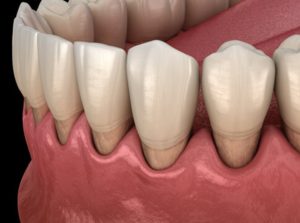
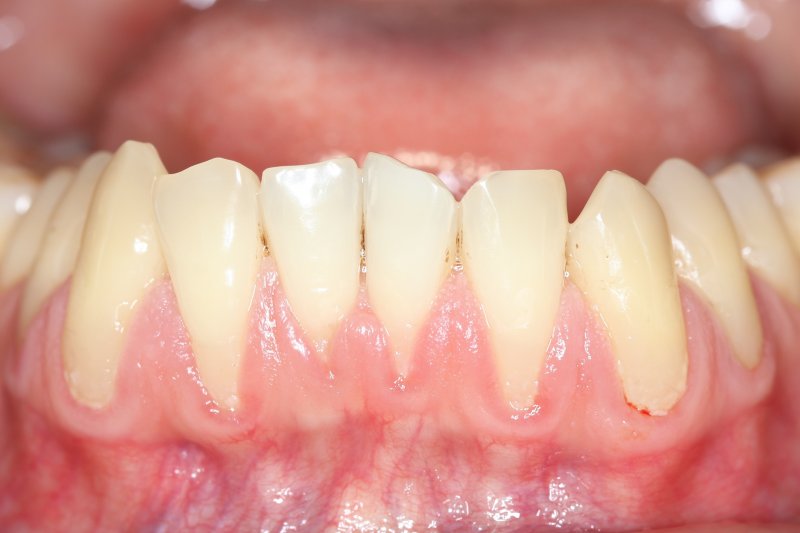
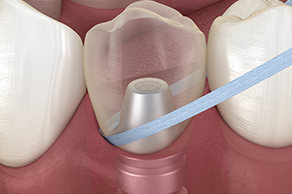

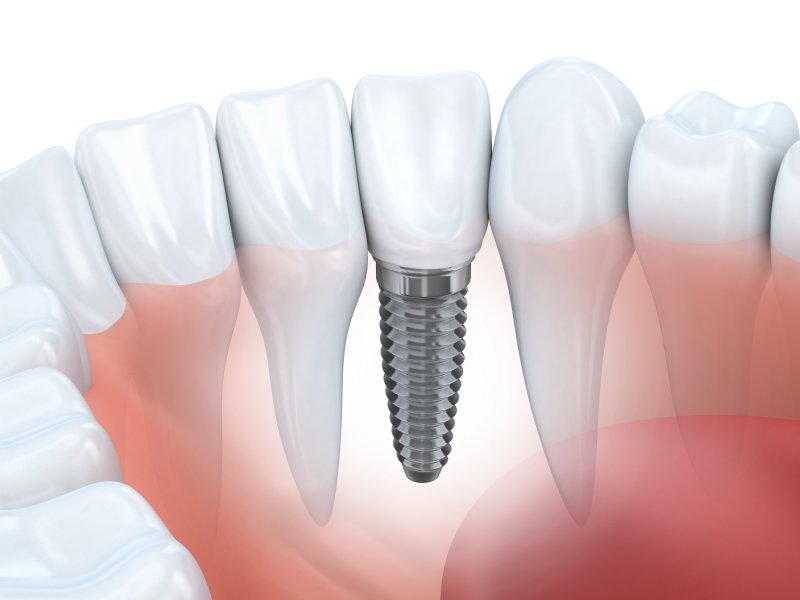


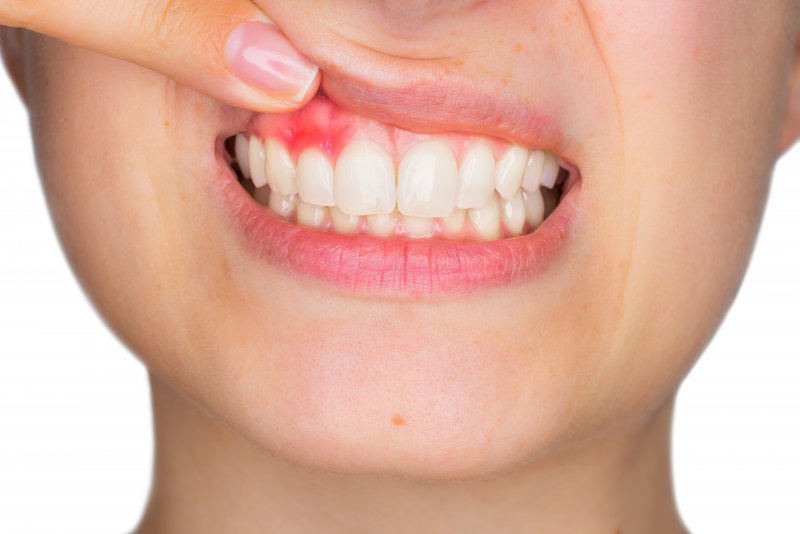






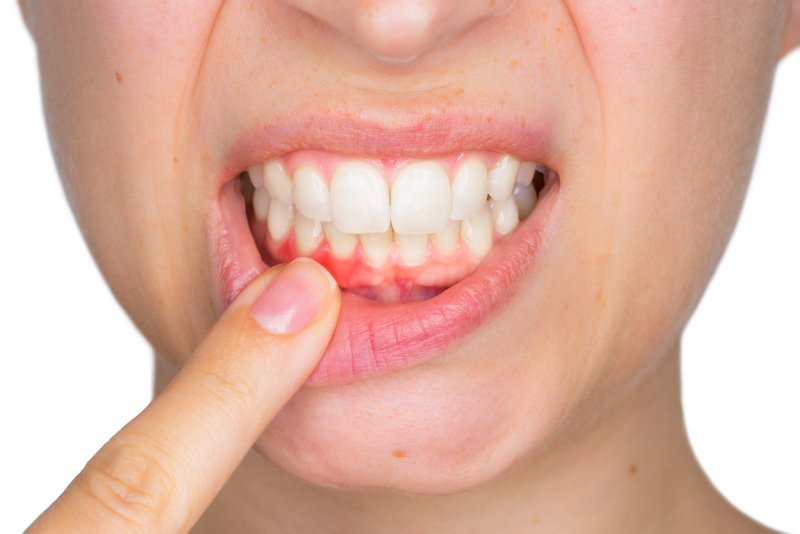


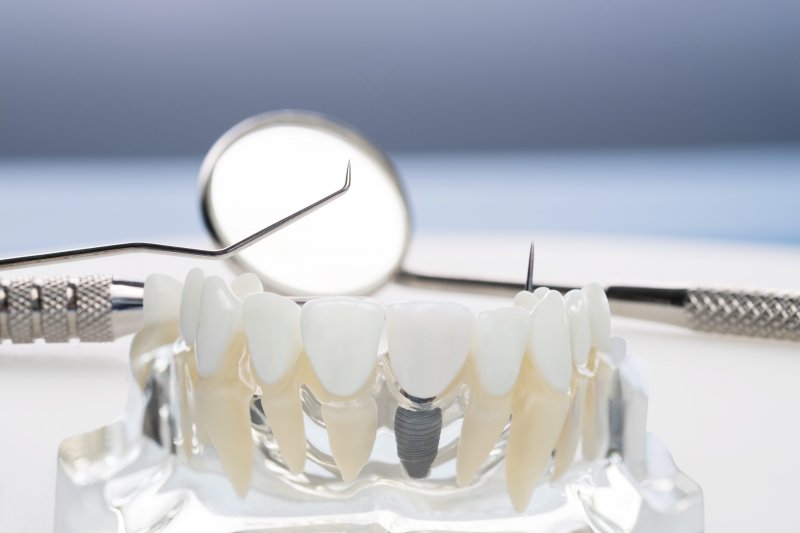
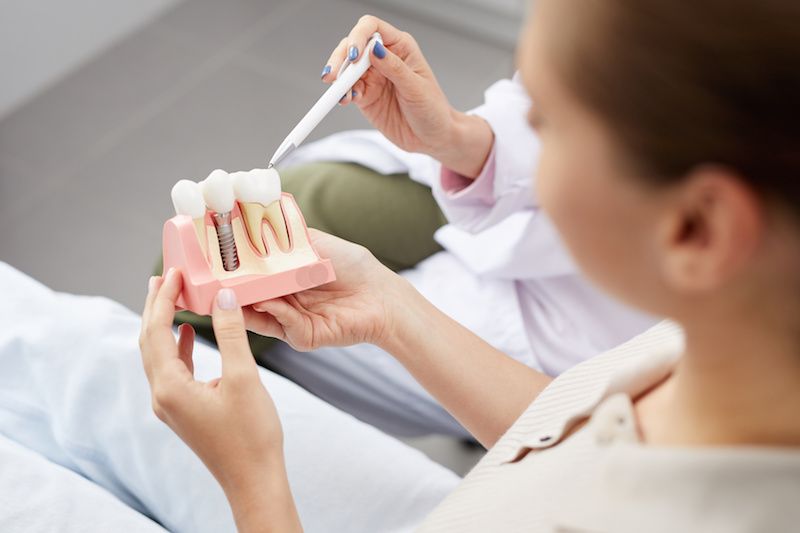


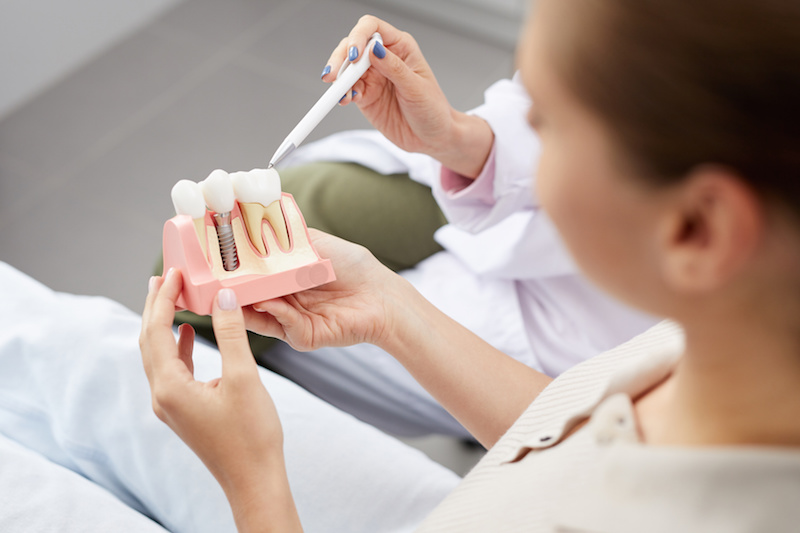



 It’s not at the top of most people’s minds, but gum disease can be a silent threat to oral and overall health and wellness. Its effects are devastating on an otherwise healthy smile — but fortunately, gum disease can easily be treated with early intervention. Below, find out everything you need to know about this condition, and how to seek treatment if you are one of the millions of Americans suffering from gum disease.
It’s not at the top of most people’s minds, but gum disease can be a silent threat to oral and overall health and wellness. Its effects are devastating on an otherwise healthy smile — but fortunately, gum disease can easily be treated with early intervention. Below, find out everything you need to know about this condition, and how to seek treatment if you are one of the millions of Americans suffering from gum disease. Do you feel like your teeth look longer than they used to? Are you experiencing worse tooth sensitivity than you have in the past? If so, gum recession may be to blame. This is especially likely if you have had gum recession in Belmont.
Do you feel like your teeth look longer than they used to? Are you experiencing worse tooth sensitivity than you have in the past? If so, gum recession may be to blame. This is especially likely if you have had gum recession in Belmont. If you are trying to quit smoking or just trying to curb the amount of nicotine you take in, vaping is widely thought to be a safer alternative. That may be true in some respects, but when it comes to your oral health, we are not 100% convinced. Inhaling from a vape pen can still put you at a higher risk of a number of issues with your teeth and gums — like periodontal disease in Belmont, for one.
If you are trying to quit smoking or just trying to curb the amount of nicotine you take in, vaping is widely thought to be a safer alternative. That may be true in some respects, but when it comes to your oral health, we are not 100% convinced. Inhaling from a vape pen can still put you at a higher risk of a number of issues with your teeth and gums — like periodontal disease in Belmont, for one. Your mouth is full of good and bad bacteria that usually coexist in harmony. In fact, research shows you may be living with anywhere from 34 to 72 different strains at once. When everything is in balance, the good bacteria keeps the not-so-good in check and all is well. However, oral health issues arise when the bad bacteria overpower the good. When that is the case, you may experience anything from a cavity or two to total tooth loss as a result of gum disease in Belmont. It is important to learn about the two most common types of risky bacteria and how you can manage them for a clean, healthy, long-lasting smile.
Your mouth is full of good and bad bacteria that usually coexist in harmony. In fact, research shows you may be living with anywhere from 34 to 72 different strains at once. When everything is in balance, the good bacteria keeps the not-so-good in check and all is well. However, oral health issues arise when the bad bacteria overpower the good. When that is the case, you may experience anything from a cavity or two to total tooth loss as a result of gum disease in Belmont. It is important to learn about the two most common types of risky bacteria and how you can manage them for a clean, healthy, long-lasting smile. There may come a time when you need to have a surgical procedure to protect your periodontal health. If that is the case for you right now, you are in excellent hands with your periodontist in Belmont. Taking the right steps pre- and post-op will help to ensure that you are able to heal as quickly and comfortably as possible. Sometimes, that includes taking an antibiotic before the surgery to protect against infection or other issues which could occur for specific patients. Below, we explore more about why certain medications are used and what to expect if taking one is part of your periodontal treatment plan.
There may come a time when you need to have a surgical procedure to protect your periodontal health. If that is the case for you right now, you are in excellent hands with your periodontist in Belmont. Taking the right steps pre- and post-op will help to ensure that you are able to heal as quickly and comfortably as possible. Sometimes, that includes taking an antibiotic before the surgery to protect against infection or other issues which could occur for specific patients. Below, we explore more about why certain medications are used and what to expect if taking one is part of your periodontal treatment plan. When you have lost one or more teeth, the first thing on your to-do list should be finding a quality replacement. In the case of one or two missing teeth, your options will include dental implants in Belmont or a fixed bridge. The former offers a far better solution most of the time. In fact, nothing else provides as much stability or longevity as dental implants.
When you have lost one or more teeth, the first thing on your to-do list should be finding a quality replacement. In the case of one or two missing teeth, your options will include dental implants in Belmont or a fixed bridge. The former offers a far better solution most of the time. In fact, nothing else provides as much stability or longevity as dental implants. You may think you can skate through life with lax oral hygiene habits for a while, but be careful. Your oral health is closely tied to your overall wellbeing — and letting the former slide can have a big impact on your cardiovascular health, especially. There is a growing mountain of evidence linking gum disease with an increased risk of heart attack and other serious heart problems. Keep reading to learn more about the connection between the two, as well as how you can protect your smile AND your overall health at the same time.
You may think you can skate through life with lax oral hygiene habits for a while, but be careful. Your oral health is closely tied to your overall wellbeing — and letting the former slide can have a big impact on your cardiovascular health, especially. There is a growing mountain of evidence linking gum disease with an increased risk of heart attack and other serious heart problems. Keep reading to learn more about the connection between the two, as well as how you can protect your smile AND your overall health at the same time. Preventing gum disease becomes more of a battle as you age, as does keeping off those few extra pounds around your waist. You know exercise will help with the latter, but what if it could improve your
Preventing gum disease becomes more of a battle as you age, as does keeping off those few extra pounds around your waist. You know exercise will help with the latter, but what if it could improve your Gum disease. Maybe you don’t think about it much, but this condition is all too common, with current estimates saying as many as half of adults over the age of 30 have it to some extent. Also known as periodontitis, gum disease can wreak havoc on an otherwise healthy mouth, and can even extend to affect your overall health as well. Below, we cover more on gum disease in Belmont, including how to prevent it.
Gum disease. Maybe you don’t think about it much, but this condition is all too common, with current estimates saying as many as half of adults over the age of 30 have it to some extent. Also known as periodontitis, gum disease can wreak havoc on an otherwise healthy mouth, and can even extend to affect your overall health as well. Below, we cover more on gum disease in Belmont, including how to prevent it. Every year, Boston Magazine puts together a list to recognize the Top Dentists working in the area. These are the professionals who offer true excellence, quality, and caring, patient-focused dentistry. This year, for the second year in a row since the award’s inception in 2017,
Every year, Boston Magazine puts together a list to recognize the Top Dentists working in the area. These are the professionals who offer true excellence, quality, and caring, patient-focused dentistry. This year, for the second year in a row since the award’s inception in 2017,  Gum disease is very common in older adults, and in its later stages (known as periodontitis) it can cause the loss of one or even all your teeth. After or alongside periodontal treatment, lost teeth need to be replaced and nothing does the job better than
Gum disease is very common in older adults, and in its later stages (known as periodontitis) it can cause the loss of one or even all your teeth. After or alongside periodontal treatment, lost teeth need to be replaced and nothing does the job better than  Gum disease is a chronic condition that is indicated by periodontal pockets, or areas where bacteria builds up and makes a home in a space between the gums and teeth. The pocket depths vary based on the severity of the disease; they will be measured to determine the level of gum disease therapy you need. If your dentist is worried about the presence of periodontal pockets, keep reading to learn more about what that means from your periodontist in Boston, Dr. Alexander R. Schrott.
Gum disease is a chronic condition that is indicated by periodontal pockets, or areas where bacteria builds up and makes a home in a space between the gums and teeth. The pocket depths vary based on the severity of the disease; they will be measured to determine the level of gum disease therapy you need. If your dentist is worried about the presence of periodontal pockets, keep reading to learn more about what that means from your periodontist in Boston, Dr. Alexander R. Schrott. Gum disease — it may not be at the top of your list of things to concern yourself with, but the truth is, it’s far more common than you probably think. Even still, a number of myths persist about gum disease. Keep reading to find out what they are! We’re here to set the record straight on gum disease.
Gum disease — it may not be at the top of your list of things to concern yourself with, but the truth is, it’s far more common than you probably think. Even still, a number of myths persist about gum disease. Keep reading to find out what they are! We’re here to set the record straight on gum disease. Are your gums bleeding? It’s not uncommon, but it’s nothing to take lightly, either. Spitting blood after you brush your teeth or having it on your dental floss can signify trouble and the need to visit a professional. In this week’s blog post, your periodontist in Boston shares the top 5 reasons gums bleed — is one of them affecting your oral health? If so, it may be time to visit
Are your gums bleeding? It’s not uncommon, but it’s nothing to take lightly, either. Spitting blood after you brush your teeth or having it on your dental floss can signify trouble and the need to visit a professional. In this week’s blog post, your periodontist in Boston shares the top 5 reasons gums bleed — is one of them affecting your oral health? If so, it may be time to visit  Gum disease is a condition that affects nearly half of American adults over the age of 35, according to the Centers for Disease Control. There are different stages and types of the disease, and knowing about them can help you be better prepared to fight this chronic inflammation of the gums. Keep reading to learn about gum disease in Belmont — your oral and overall health depends on it.
Gum disease is a condition that affects nearly half of American adults over the age of 35, according to the Centers for Disease Control. There are different stages and types of the disease, and knowing about them can help you be better prepared to fight this chronic inflammation of the gums. Keep reading to learn about gum disease in Belmont — your oral and overall health depends on it. Gum disease is a common chronic condition that affects nearly half of adults in the United States. Left untreated, it leads to tooth loss and has been linked to a number of serious health conditions, like uncontrolled diabetes, cardiovascular disease, stroke, heart attack and even pregnancy complications. Knowing about your risk of developing the disease can help you prevent it — find out about the risk factors of gum disease from your periodontist in Boston below.
Gum disease is a common chronic condition that affects nearly half of adults in the United States. Left untreated, it leads to tooth loss and has been linked to a number of serious health conditions, like uncontrolled diabetes, cardiovascular disease, stroke, heart attack and even pregnancy complications. Knowing about your risk of developing the disease can help you prevent it — find out about the risk factors of gum disease from your periodontist in Boston below.